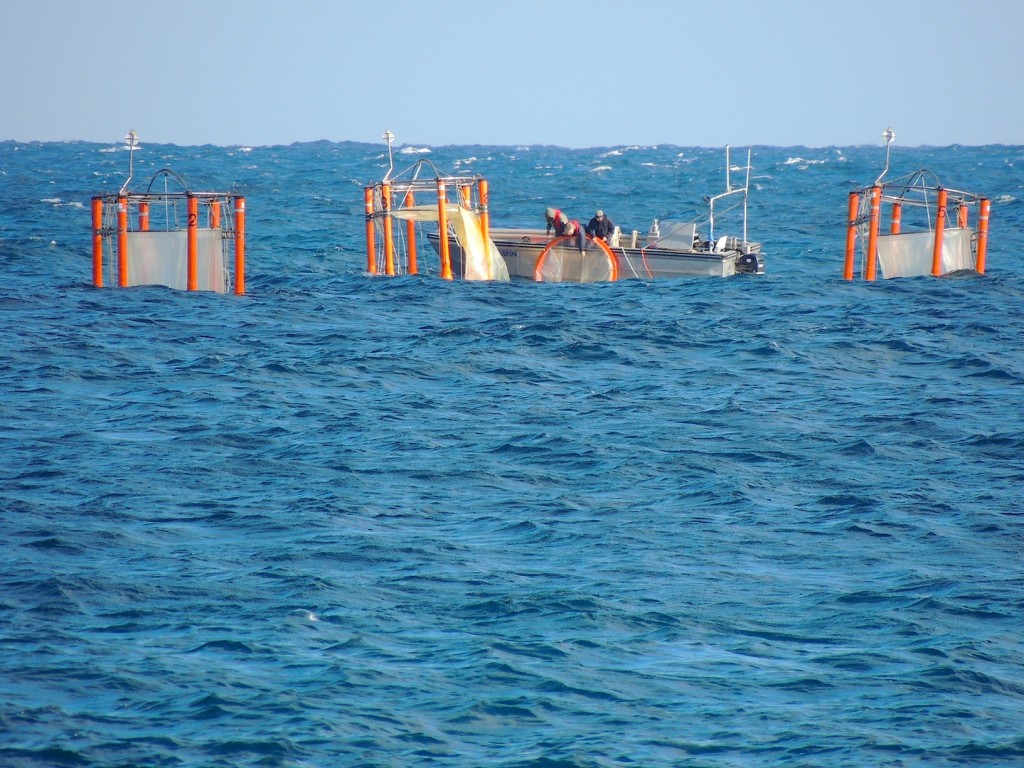For a moment we were relieved when the storm settled down and our nine mesocosms were still in place heads above surface. But we were anxiously waiting for the divers to carefully inspect our wave-battered mesocosms.
Their reports and the underwater video footage they brought back were sobering. The scene below the surface was very different from that above. Lines were ripped and shekels broken. Three of the bags had large fissures. The metal rings keeping the bags in shape were torn out of their pouches and taken into pieces. Several of the mesocosms had lost huge amounts of water. A saddening sight. It is hard to imagine the forces that must have worked on the mesocosms to cause these massive destructions. Surprisingly, the lower half of the bags and the flanges and sediment traps at the bottom end looked just fine.
When looking at the underwater videos taken by the divers it was immediately clear to everyone in the group: There is no point in continuing the experiment.
At a brainstorming meeting yesterday we collected ideas for how to make the best use of the situation and do as much interesting science as possible in land-based short-term experiments. Lots of great ideas came up and many interesting questions can be addressed in a range of side experiments with specific focus on bacteria, phytoplankton, zooplankton, and possibly fish larvae. It’s amazing to see how the group keeps up the good spirit and eagerly works out a plan B.
At the same time we are exploring our options for a repeat of the KOSMOS-GC experiment. Other, more protected areas around the island are being explored and wind and wave statistics of the past 20 years being studied. With the excellent conditions provided to us by PLOCAN and the University of Las Palmas, the great collaborations which have developed during the past weeks and the exiting science expected to come out of this project it would be a shame to clear operations now.
In two days POSEIDON will join us again and we are eager to do some off-shore sampling and run some tests, including that of the large volume deep-water collector, which so far has only been tested in the shallow Baltic Sea. With lots still on our plates, there is little time to hang the head. But every once in a while a feeling of sadness creeps up.

Oh mann.
Ich wünsch euch Alles Gute.
Christian
Sad news but on the positive side nothing was washed away and lost and nobody got injured. I am sure the group will come up with some very good alternatives in the near future. Fish eggs and larvae should soon be available in a number of sites shortly from our experience.
Hope things improve along with the weather.
Best wishes form Düsseldorf
Was für ein Pech. Aber toll, dass ihr sofort weiter macht. Keep up the good spirit!
Annette